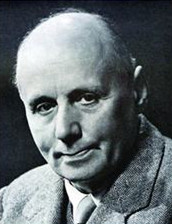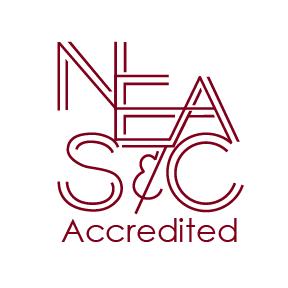MENA Cultural Week: Shattering Stereotypes, Sharing Stories
Issue date:2025-03-10
What comes to mind when you think of the Middle East and North Africa (MENA)? News headlines about wars? Endless stories of conflict?
From February 17th to 21st, at UWC Changshu China, students from the region spent a week showing a very different side of their culture.
Yuze Liu, a DP2 student, shared: "When I think of the MENA region in the future, I would remember the soothing melody of the oud, reminiscent of a gentle desert breeze at night, the Hebrew folk song אלתפחד that has made its way onto my playlist, and the classic shimmy move in the Persian dance I performed."
Through 20+ curated activities, such as food and art events, language workshops, and personal storytelling sessions, students from the MENA region opened a window for community members. They invited everyone to rediscover the region and explore its vibrancy and charm.
Diverse Activities,
Immersive Cultural Journeys
As community members kneaded dough and sprinkled za'atar spices, the aroma of Manakish and sweet Atayef pancakes filled the air. This event provided participants with an opportunity to experience the local food culture of the MENA region by making the dishes themselves.
From learning Arabic dialects and Hebrew lessons to attending Islamic art workshops and discussions that challenge stereotypes, participants delved into the rich history of MENA's 22 countries. They explored outdated perceptions, their origins, and the media's role in shaping these views.
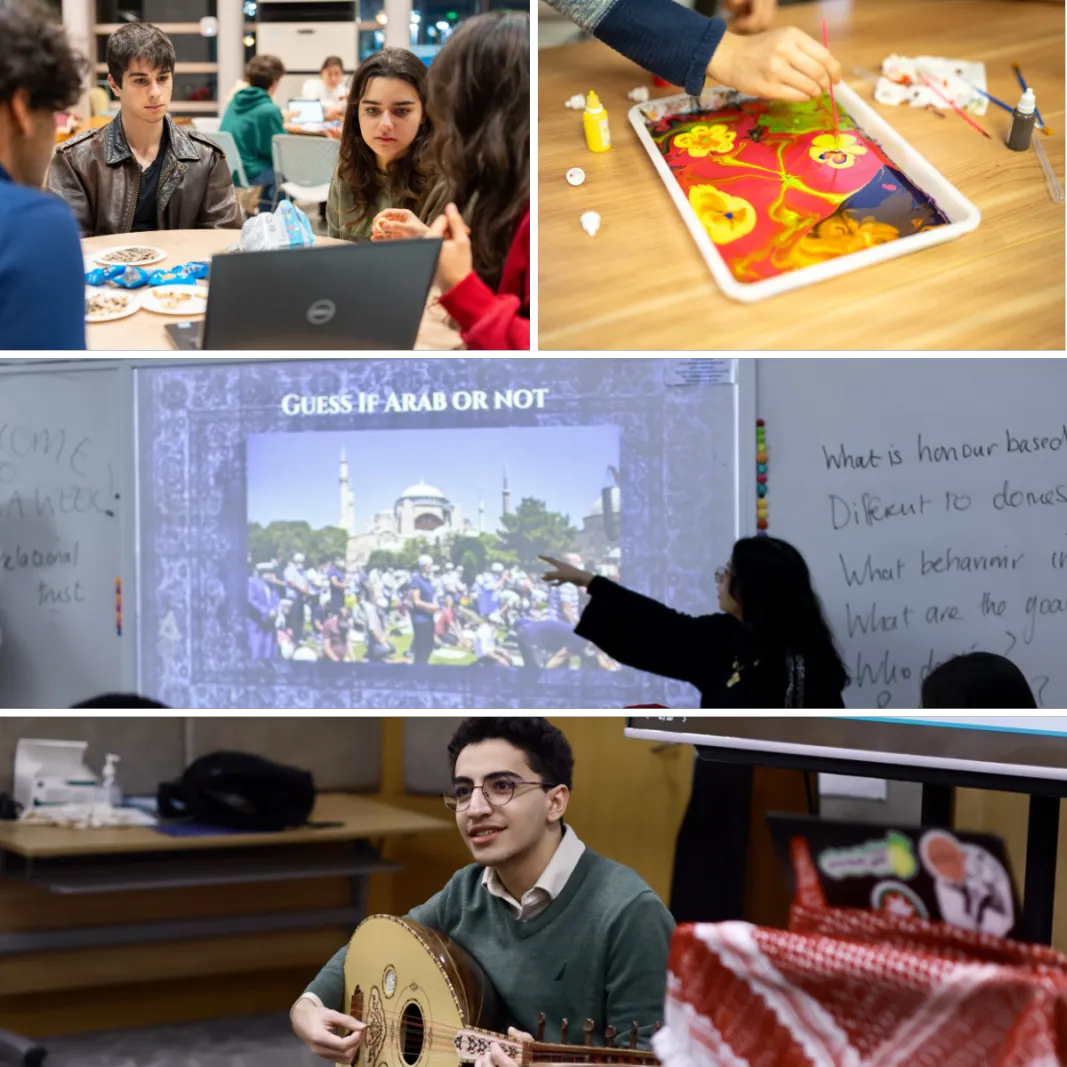
In Tea & Read sessions and Trivia Nights, participants learned about MENA's history, culture, geography, and modern challenges.
From the Microtonal workshop to the exciting exchanges in Global Café discussions, participants experienced different perspectives, learned, and broadened their understanding of this region through communication.
The week culminated in a One Thousand and One Nights performance—11 acts spanning dance, music, fashion shows, and short plays.
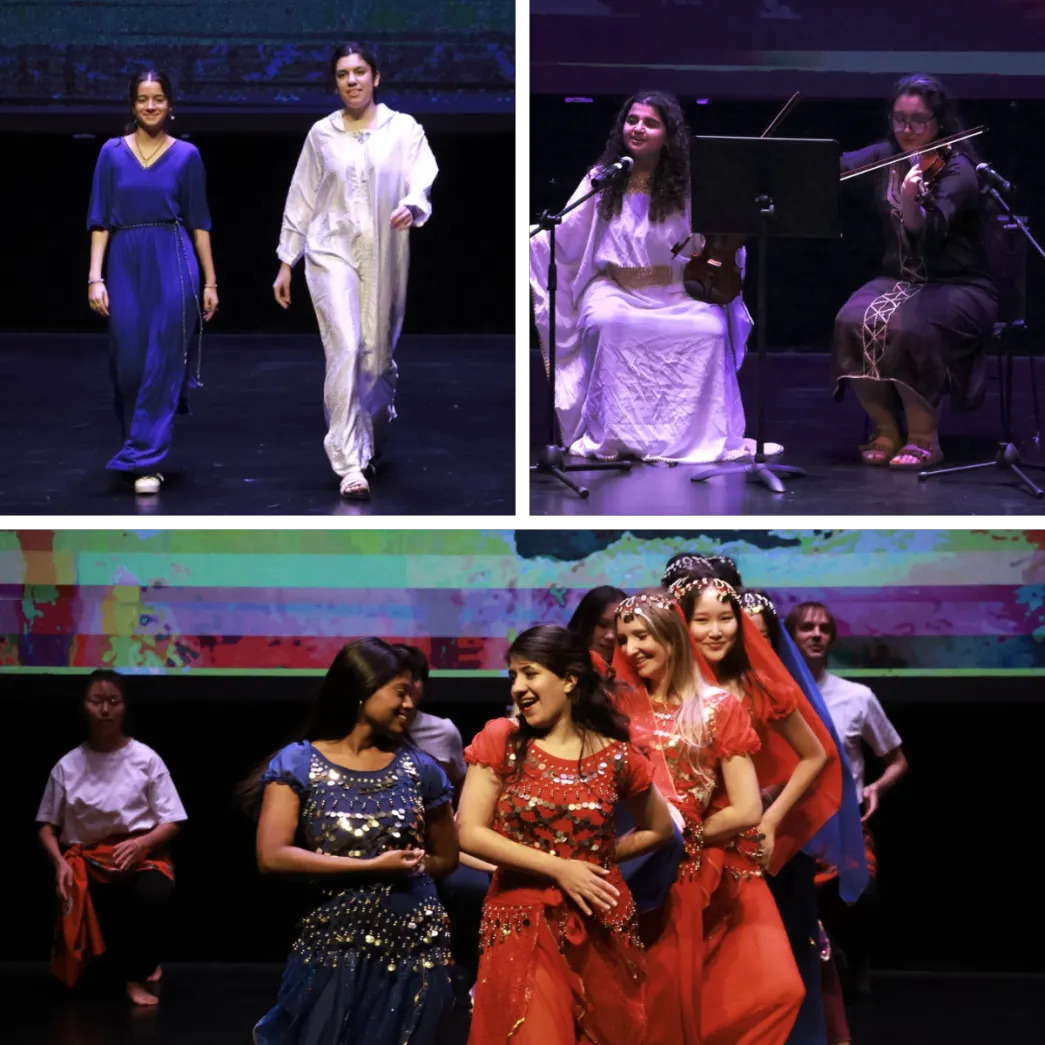
As one of the student leaders, Lulwa explained, "Our show aimed to showcase the rich cultural expressions of the Middle East and North Africa while actively including community members from beyond the region. This inclusive approach allowed participants to learn about our culture through practice and collaborative efforts, resulting in meaningful works of art that fostered cross-cultural understanding and collaboration."
Personal Stories Sharing
This week, students shared their stories. Cross-cultural understanding starts by letting go of assumptions and truly listening to individual stories.
Maria (DP2 student):
Bombs & Fireworks, My Growth Story
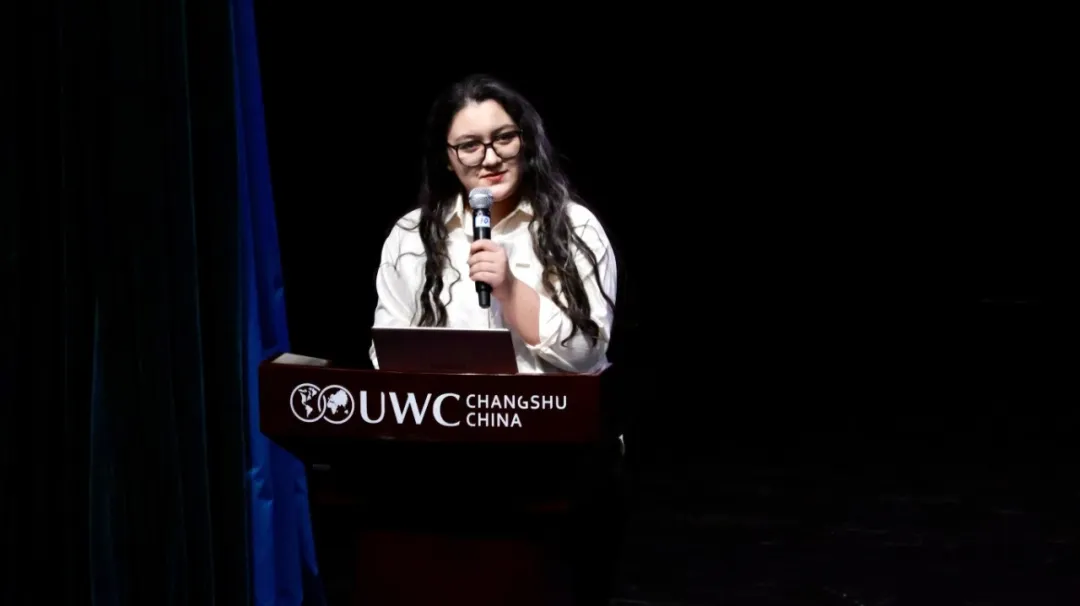
I am Maria Ya Huang. I was born and raised in Damascus, Syria, to a Syrian father and a Chinese mother. I have lived there my whole life and did not move until I joined UWC as an FP.
Growing up in Syria was not easy. For much of my life, the sounds of bombs were a constant backdrop. For a while, these sounds became so frequent that they felt almost normal. But even during the war, life went on. I still had moments of joy, going out with my friends, laughing with them.
When I first moved here, I was startled by the sound of fireworks. To most people, fireworks are a celebration, but to me, they were a reminder of the bombs I had grown up hearing. It took time, but I eventually got used to them. It's funny how the same sound can mean such different things in two different places.
This duality has been a recurring theme in my life. In Syria, I was seen as a Chinese girl, but in China, I was seen as a Syrian girl. People would ask me questions like, "How is the weather there?" or "What language do you speak? Is it Syrian?" Others would ask, "Do you use chopsticks?" These questions made me realize that I am a representative of both countries.
Today, what I want people to know is that Syria is more than just a war-torn country. It's a place of rich cuisine and history, the warmth of its people, the sound of its dialect, and the memories I hold dear.
Rayyan (DP1 student):
Embracing Dreams in the Midst of Difficulties
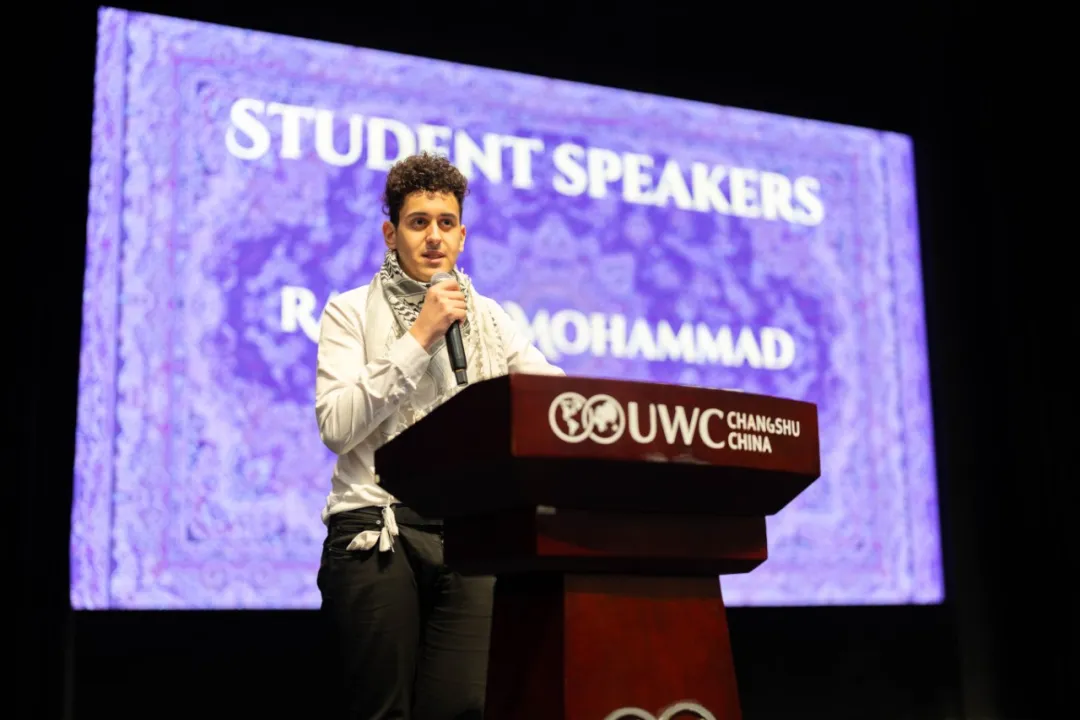
My name is Rayyan Khalif, and I'm a Palestinian. I grew up in a place marked by conflict but also by strength. When I was 16, I spent six months building a robot for the World Robotics Olympics. My team won in Palestine and was supposed to go to Panama, but we weren't allowed to travel. Our robot was taken, and our teacher was arrested. No one told us why.
Losing is something Palestinians know well. Still, even in our sadness, we keep planting new seeds. The war took a year of my education. But we Palestinians never give up; we always find new ways. I competed in ISEF, the world's largest science competition, with a project using artificial intelligence to treat addiction. My work won, and Palestine was called to Los Angeles. Again, I wasn't allowed to travel. But this time, I did not give up on hope. I applied to UWC, and here I am. But my friends in Gaza haven’t been to school in a year.
Perhaps someone would ask why I am telling you this? Not to focus on the pain, but to show you our strength. Every loss, every "no" we hear, we answer with "yes." Yes to education. Yes to new ideas. Yes to life. I say: Hope isn't a fool. It's what keeps us going. Don’t look at us as victims. But look at us as hoppers who keep going no matter what.
I want to leave you with a question: What does it mean to be human?
To me, it's choosing to rise, even when the world tries to push you down. Palestine taught me that.
Voices of Participating Students:
Gains and Growth
Yuze Liu (DP2 student):
Feelings and Inspirations Brought by Dialogues and Experiences
It was half past eight, long past the time for Global Café to wrap up, yet no one wanted to end the conversation. Our discussion had strayed far from its starting point on Armenian aesthetic biases and shifted instead to unexpected events in Lebanon and social transformations in Hungary. I stole glances at the table beside us, where an intense debate had broken out, charged with tension and excitement.
I soaked up stories from different countries like a sponge while learning from my peers. Callista, the organizer of Global Café, referred to a podcast she had listened to a few days ago and asked our Palestinian friend pointed questions about the ongoing conflict. Waves of information washed over me, making me more conscious of my "echo chamber"—especially when, after spending ten minutes at a discussion table, I still had no idea what people were talking about. I made a silent resolve: I would go back and read more works by Middle Eastern and North African writers, as well as books on current affairs. At the same time, I felt an increasing urgency to read more about Chinese culture, history, and governance before leaving my home country so that I could share insights as naturally as my peers did.
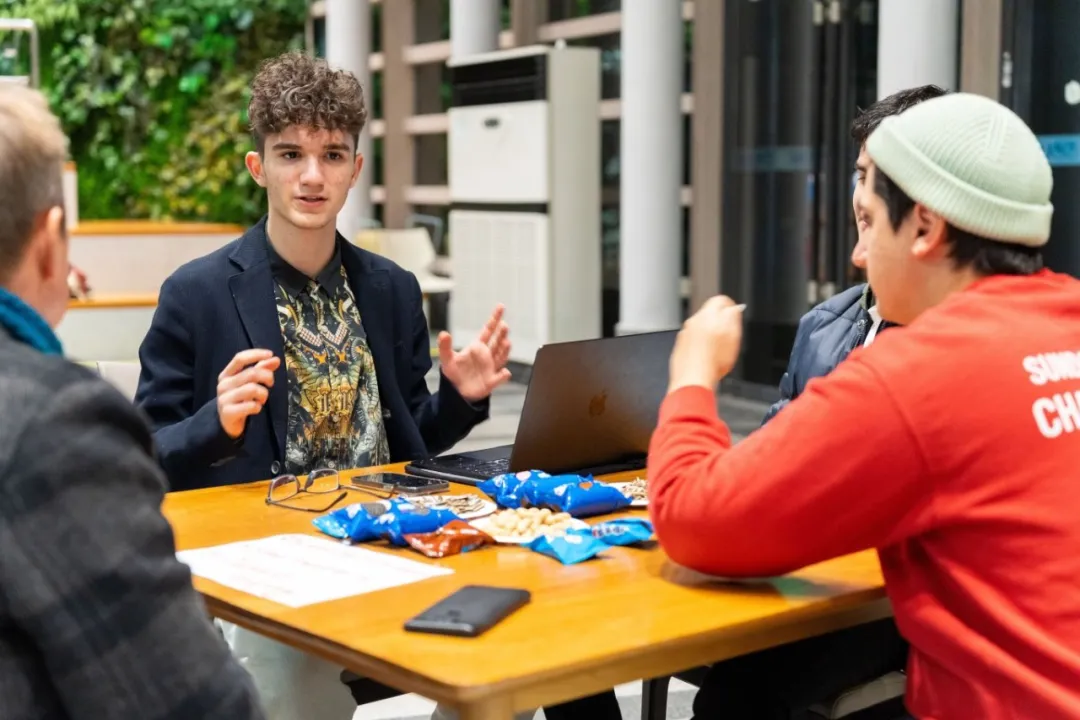
Global Café
The highlight of MENA Week for me was its final event—"One Thousand and One Nights." My favorite part was the play of the same name, which centered around the story of Scheherazade and King Shahryar, with brisk pacing and perfect humor. Aladdin's occasional appearances on stage had the entire audience roaring with laughter. The play took me back to my childhood when I was flipping through the illustrated pages of Ali Baba and the Forty Thieves. Only then did I realize that Arab folklore had been a part of my childhood all along, though I had never made the connection before.
Until this point, most of the Middle Eastern literature I had come across—whether it was I Am Malala or The Kite Runner—had been inextricably linked to war and social unrest, not to mention the news on social media. But after that night, I knew that when I think of the MENA region in the future, it wouldn't be images of conflict that came to mind. Instead, I would remember the soothing melody of the oud, reminiscent of a gentle desert breeze at night, the Hebrew folk song אל תפחד that has made its way onto my playlist, and the classic shimmy move in the Persian dance I performed.
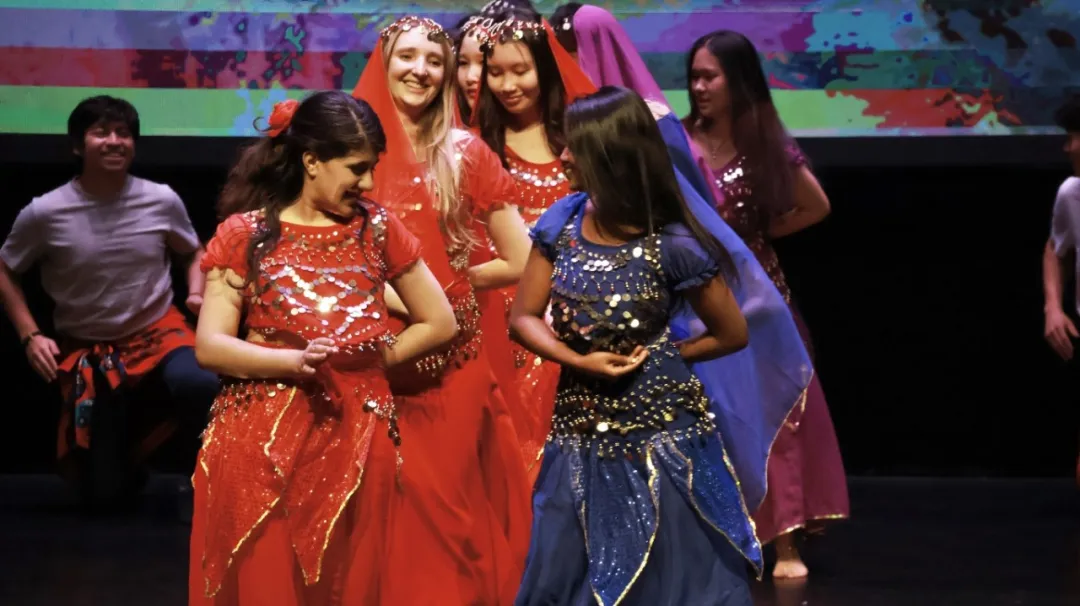
Persian dance
The shimmy had been the most difficult move for me to master. No matter how much I practiced, my movements always felt stiff. My patience returned when I saw Nikita, who was about to give birth but still danced with energy and grace. Faisal, who had been performing this dance since childhood at celebrations, guided us by having us brace our hands against a wall and focus only on shoulder movements. Slowly, I started to get the hang of it—but even by the time our performance ended, I knew I had yet to fully understand its essence.
To be honest, I rarely participated in performances because the requirements are usually too high for me. Luckily, the cultural week welcomed everyone, giving me a chance to experience the warmth of the stage. When most of the cultural week was organized by people from the respective cultures, and when our social circles were still shaped by geographical divides, seeing so many people from different cultures come together for something like Persian dance was nothing short of exhilarating.
After the performance, we all crowded into a small room, and the air was abuzz like a fizzy drink. Everyone congratulated one another. Sarah, one of the organizers, walked in and told us it had been a perfect show. She thanked us, saying that the dance was special to her because in her home country, cultural performances like this were currently prohibited. When it was time for a group photo, someone suddenly started singing our dance's rhythm: "Shake, shake!" Laughter spread through the room. Someone else called out the beat, and all of us joined in: "One, two, three, four..."
MENA Week reminded me once again that no culture is singular or homogeneous. Perhaps it was like what the opening speaker at the event had said: "I don't want you to assume that just because I wear a hijab, the only thing I can talk about is religion and women's rights. I want you to care about me—to know what I love and what I hate." I came to understand that my approach to culture should not be limited to a single perspective. Instead, I should pay equal attention to histories, traditions, and emotions while seeking my own resonance and connection.
Zoe Cheng (DP1 student):
Breaking Stereotypes and Embracing Diverse Cultures
Coming from the U.S., there are many stereotypes about the MENA region, and although I knew many of them were not true. I never knew the richness and beauty of MENA culture. The traditional clothes that were once a representation of "terrorists" now represent the culture of an entire country.
Many stereotypes were broken by participating in this week, I saw the passion people had for their culture. I learned that hijabs can be a choice and not a forceful command; things like these are not explored a lot in the U.S. I've learned so many things, like words for traditional clothes and how to make Lebanese food with Lulwa. I learned the richness of Persian dance and the joy it can bring to many.
If I could share anything, it would be to always have an open mind and heart and to realize that no matter the culture of someone, it will always be a part of them. As a UWC community, we should not disregard the culture of someone just because we don't agree; rather, we should embrace their culture and admire its beauty. 。
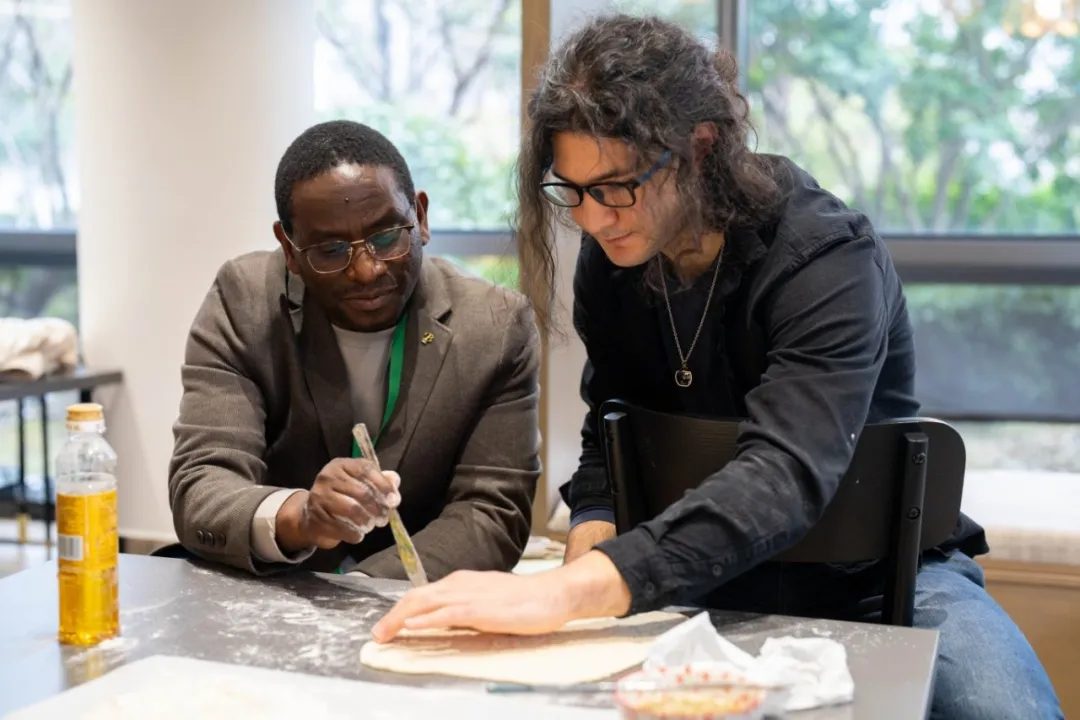
Making Manakish
Similar to the African, Americas, and European Cultural Weeks, every aspect of the MENA Cultural Week—ranging from the initial brainstorming to event logistics—was led by students. Their goal was to foster cross-cultural exchange and collaboration, immersing the community in a rich tapestry of traditions and sparking curiosity about the region's diverse heritage.
What's next? The Asian Cultural Week is already in the works—stay tuned!
-End-







